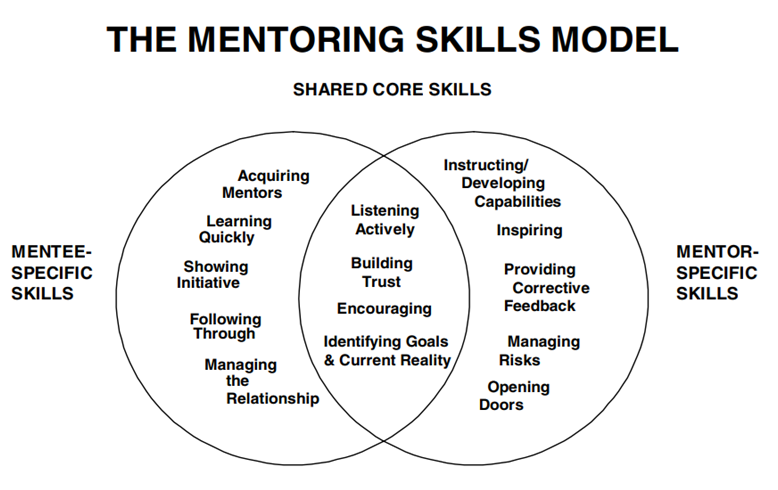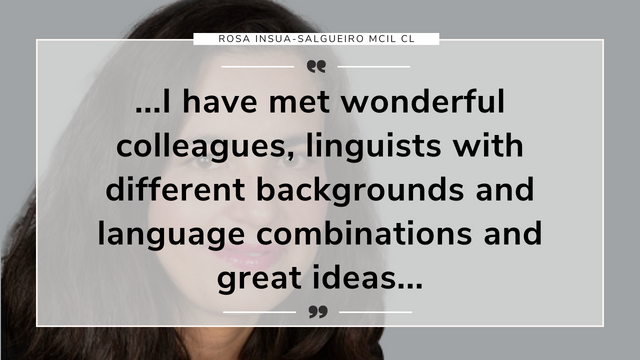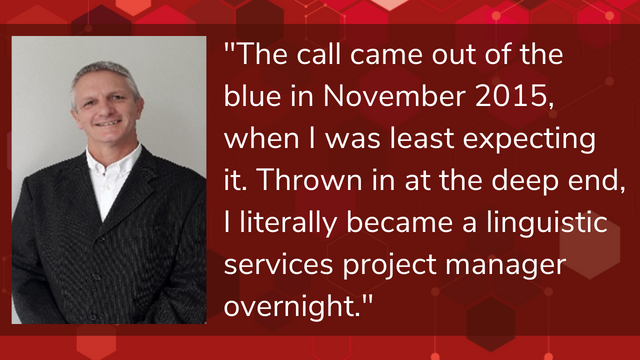-
QUALIFICATIONS
- For Linguists Worldwide
- For UK Public Services
- Preparation
- Policies & Regulation
-
MEMBERSHIP
- Join CIOL
- Membership grades
- NEW for Language Lovers
- Chartered Linguist
- Already a member?
- Professional conduct
- Business & Corporate Partners
-
ASSESSMENTS
- For Second Language Speakers
- English as a Second Language
-
EVENTS & TRAINING
- CPD, Webinars & Training
- CIOL Conference Season 2025
- Events & Networks
- CIOL Mentoring
-
NEWS & VOICES
- News & Voices
- CIOL eNews
- CIOL Awards
- The Linguist
- Jobs & Ads
-
RESOURCES
- For Translators & Interpreters
- For Universities & Students
- Standards & Norms
- CIOL & AI
- All Party Parliamentary Group
- In the UK
- UK Public Services
- Find-a-Linguist
The Skills of a Mentor
For years it was widely held that successful mentoring came from a natural chemistry between the mentor and mentee. As a result some people naturally fell into a successful mentoring relationship, reaping the rewards; whilst such a relationship eluded many others.
In 1977 as part of her doctoral dissertation, psychologist Linda Phillips-Jones examined hundreds of mentor-mentee relationships, as well as those individuals who had been unable to identify any mentors in their lives. This was the first time academic research had looked to get under the skin of a mentoring relationship. The result was an understanding that mentoring was much more complex than first thought – and that mentors and mentees use specific processes and skills throughout their relationship. Furthermore these processes and skills can be learnt and honed, to make the mentor-mentee relationship more enjoyable, effective and time-efficient. The research identified the following mentoring skills:

Mentor specific skills
· Instructing/developing capabilities
· Inspiring
· Providing corrective feedback
· Managing risks
· Opening doors
Mentee specific skills
· Acquiring mentors
· Learning quickly
· Showing initiative
· Following through
· Managing the relationship
Skills for both mentor and mentee
· Actively listening
· Building trust
· Encouraging
· Identifying goals and current reality
Here we will look more in-depth at the skills required for a mentor:
1. Actively listening
When we listen well, we demonstrate that the mentee’s concerns have been heard and understood. This enables our relationship to grow and for trust to build. If you’re an excellent listener you will:
· Make encouraging responses and paraphrase the point the mentee has made
· Use appropriate non-verbal communication, such as looking into the mentee’s eyes, nodding as they speak, mirroring their non-verbal communication, ie. smiling when they smile
· Show interest in things the mentee has said previously
· Never interrupt the mentee
2. Building Trust
Trust develops over time, to help this you should:
· Keep confidences
· Spend sufficient time with your mentee
· Deliver on your promises
· Take responsibility for any errors
· Explain sensitively why you disagree with a mentee’s view
3. Encouraging
Phillips-Jones’ research identified that the most valued mentoring skill is giving encouragement. Encouragement builds a mentee’s confidence, enabling them to develop.
· Praise your mentee
· Point out their positive traits
· Express your appreciation
4. Identifying Goals
Goal setting is essential as part of a mentoring journey. Your role, as a mentor, is to help the mentee identify their personal vision and specific goals – and to recognise where they need to grow and where they need support to reach their goals.
5. Instructing/Developing Capabilities
As a mentor your instructing will be informal, from modelling behaviours to setting out ideas and processes.
· Help your mentee identify resources – whether people, books, websites, software
· Teach new knowledge, skills and attitudes by giving examples and asking though provoking questions
· Help your mentee gain a broader perspective
· Help your mentee monitor their performance and refocus their goals and/or actions
6. Inspiring
As a mentor you should set an example to inspire your mentee, but also help your mentee identify other inspiration people and situations. It can be tempting to tell mentees what to do, and even to have them follow in your footsteps. However, your role is to help the mentee identify and move towards their vision for themselves.
7. Providing Corrective Feedback
When you see your mentee making mistakes or performing in less than desirable ways, you should provide direct and constructive feedback. When starting your mentoring relationship, it can be useful to discuss if and how a mentee would like to receive such feedback. Having such a conversation upfront, can ease the way when you actually have to give such feedback.
· Use positive professional language and tone of voice
· Always give such feedback in private and as soon as possible
· Give specific feedback on specific behaviours
· Suggest how they could do things differently should there be a next time
8. Managing Risks
One of your roles is to prevent your mentee from making unnecessary mistakes. These may include: dealing incorrectly with customers or colleagues, missing deadlines, underestimating project costs, doing something unethical.
· Help your mentee recognise the risks
· Suggest how they can avoid major risks in terms of business, their career, financial, personal and relationships
9. Opening Doors
When mentors vouch for mentees, the mentee’s work is much more likely to be well-received – this is human nature.
· Put in a good word to people who could help your mentee reach their goals
· Personally introduce your mentee to appropriate contacts
Using these skills you will be able to guide and support your mentee effectively towards their goals and personal vision.
Filter by category
More
The Chartered Institute of Linguists (CIOL), Incorporated by Royal Charter, Registered in England and Wales Number RC 000808 and the IoL Educational Trust (IoLET), trading as CIOL Qualifications, Company limited by Guarantee, Registered in England and Wales Number 04297497 and Registered Charity Number 1090263. CIOL is a not-for-profit organisation.







